detail profile fernand charpin
Peran Yang Di Mainkan Fernand Charpin
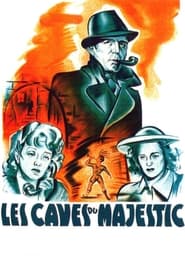 In my cellar where case workers...
In my cellar where case workers...Majestic Hotel Cellars 1945
In my “cellar” where case workers all the people of a great hotel, the head of the café, Donge, finds the corpse of Mrs Petersen, a rich client. The investigation by Maigret allows him to rub the husband of the victim, a Swede, Teddy, Ms Petersen’s son, his housekeeper, a social dancer and Donge himself who is the natural father of Teddy. The child he will go to his real father or not he will leave the rich Petersen who adores? The murder mystery and enigma sentimental are resolved by Maigret.
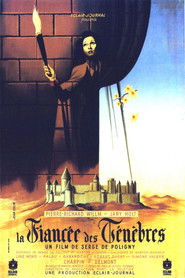 Sylvie a young woman who believes...
Sylvie a young woman who believes...The Bride of Darkness 1945
Sylvie, a young woman who believes to be cursed, lives in the town of Carcassonne with her guardian, Mr. Toulzac. He is a retired teacher who wishes to discover the secret of the Cathars, a Christian sect of the Middle Ages that glorified death over life. Sylvie meets Roland, a composer who instills new hope into her troubled mind. Mr. Toulzac then asks her then to renounce the world and go down a secret tomb he has just found.
 Jules Frmissin is shy and in...
Jules Frmissin is shy and in...Two Shy Ones 1943
Jules Frémissin is shy and in love. The father of the object of his flame is also shy. The marriage proposal is very laborious, because before marrying Cécile Thibaudier, Jules must fight a duel with the arrogant Vancouver, convinced that all this eager and awkward courtship was intended for his own wife, also named Cécile.
 Pierre and Florence meet at the...
Pierre and Florence meet at the...La Prière aux étoiles 1941
Pierre and Florence meet at the fair in Paris. They vow eternal love and go to Cassis, under the Southern sun. But Florence has a burdensome past: before meeting Pierre she was a kept woman. Her chivalrous lover, Dominique, chooses to set her free. But Pierre is an uncompromising man and, furious with Florence, threatens to leave her...
 A rural maidens two suitors go...
A rural maidens two suitors go...The Well-Digger's Daughter 1940
A rural maiden's two suitors go off to war, leaving her pregnant.
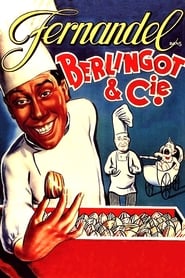 Franois and Victor sell hard candy...
Franois and Victor sell hard candy...Berlingot and Company 1939
François and Victor sell hard candy at the fun fair. They also bring up Gisèle, a one-year-old child they found by the side of the road. Although the two men are often at each other's throats they are the best friends, getting on well with the other fairground people. But when they defend Lisa, the fortune teller's daughter against Dédé, a thug who pesters her, they provoke his anger. Dédé sets fire to the two friends' stand and they are forced to take the road.
 In this little Provencal village a...
In this little Provencal village a...The Baker's Wife 1938
In this little Provencal village, a new baker, Aimable, settles down. His wife Aurelie is beautiful and much younger than he. She departs with a shepherd the night after Aimable produces his first breads. Aimable is so afflicted that he can not work anymore. Therefore, the villagers, who initially laughed at his cuckoldry, take the matter very seriously (they want the bread) and organize a plan to find Aurelie and to bring her back to the bakery.
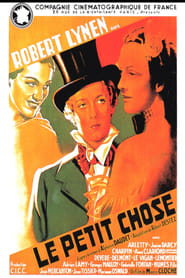 Now that their parents are ruined...
Now that their parents are ruined...The Little Thing 1938
Now that their parents are ruined, Jacques Eyssette and his younger brother Daniel, are driven to fend for themselves. Jacques becomes the secretary of a marquis who exploits him by making him work so hard that his health gets damaged. Daniel, on his part, is hired as a supervisor and Latin teacher in a school in the province. It soon happens that he is in a bad situation too as, after being subjected to repeated harassment, he ends up being fired. Daniel then decides to join Jacques in Paris, hoping to embark on a literary career. Unfortunately, Irma Borel, an actress, sets her sight on him and drags him into a life of vice.
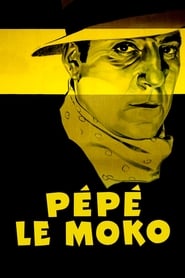 Pp le Moko one of Frances...
Pp le Moko one of Frances...Pépé le Moko 1937
Pépé le Moko, one of France's most wanted criminals, hides out in the Casbah section of Algiers. He knows police will be waiting for him if he tries to leave the city. When Pépé meets Gaby, a gorgeous woman from Paris who is lost in the Casbah, he falls for her.
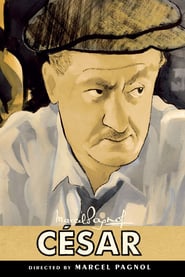 Honor Panisse is dying cheerfully with...
Honor Panisse is dying cheerfully with...César 1936
Honoré Panisse is dying, cheerfully, with friends, wife, and son at his side. He confesses to the priest in front of his friends; he insists that the doctor be truthful. But, he cannot bring himself to tell his son Césariot that his real father is Marius, the absent son of César, Césariot's godfather. Panisse leaves that to Fanny, the lad's mother. Dissembling that he's off to see a friend, Césariot then seeks Marius, now a mechanic in Toulon. Posing as a journalist, Césariot spends time with Marius and leaves believing tales he is a petty thief. Only after the truth comes out can Marius, Fanny, César, and Césariot step beyond the falsehoods, benign though they may be.
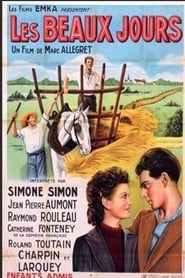 Sylvie a rich girl learns at...
Sylvie a rich girl learns at...Happy Days 1935
Sylvie, a rich girl, learns at the same time the death and the ruin of her father. Forced to find work in Paris, she is given shelter by a medical student who soon falls for her. Another young man falls in love with her. When her benefactor gets ill and finally dies, Sylvie refuses to give the other man her heart out of faithfulness for the dearly departed. But youth commands and after a time love -but not oblivion - triumphs.
 In 1885 La Guillaumette and Croquebol are...
In 1885 La Guillaumette and Croquebol are...Le train de 8 H 47 1934
In 1885, La Guillaumette and Croquebol are two cavalrymen who are constantly victimised by their superior, adjutant Flick. One day, the two men are given an opportunity to redeem themselves by recovering four horses that have gone astray. Unfortunately, they follow the horses' example by taking the wrong train. When they finally make it back to barracks, after a long series of mishaps, they are rewarded with sixty days in prison.
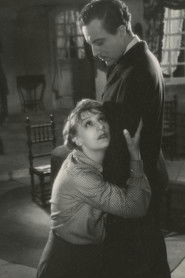 During a transvestite ball a young...
During a transvestite ball a young...Sapho 1934
During a transvestite ball, a young provincial meets Fanny Legrand. A great love is born between them. Later, the young man learns that Fanny was a great coquette. He leaves her, he comes back, he forgives. But when he embarks for America, Fanny does not follow him.
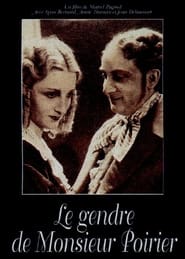 This is the story of a...
This is the story of a...Mr Poirier's Son-in-Law 1933
This is the story of a wealthy bourgeois who marries his only child, a daughter, to a penniless nobleman because he hopes to use his son-in-law to get a title. The son-in-law is a lazy, affected stereotype; but M. Poirier is also a stereotype, of the obnoxious big businessman. The poor daughter, who falls in love with her husband, lets him walk all over her.
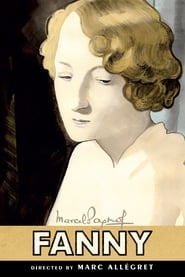 Picking up moments after the end...
Picking up moments after the end...Fanny 1932
Picking up moments after the end of Marius, this film follows Fanny’s grief after Marius’s departure—and her realization that she’s pregnant. Panisse continues courting her and embraces the baby’s impending arrival as a gift, so long as its paternity remains a secret. Fanny and Panisse wed, but after her baby’s birth, Marius returns unexpectedly and demands what he believes is still his.
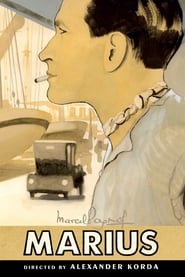 Csar runs a bar along Marseilles...
Csar runs a bar along Marseilles...Marius 1931
César runs a bar along Marseilles' port, assisted by his 23 year old son, Marius. Colorful characters abound: M. Panisse, an aging widower and prosperous sail maker; Honorine, a fishmonger with a sidewalk stall near the bar; her daughter, Fanny, who helps her sell cockles just outside the bar; and various old salts. Friends since childhood, Fanny and Marius love each other, but Marius has a secret wanderlust: every ship's whistle stirs a longing for foreign lands. When M. Panisse seeks Fanny's hand in marriage and when a departing clipper needs a deckhand, Marius and Fanny must decide who and what they love most. César, with his generous, wise spirit, tries to guide his son.
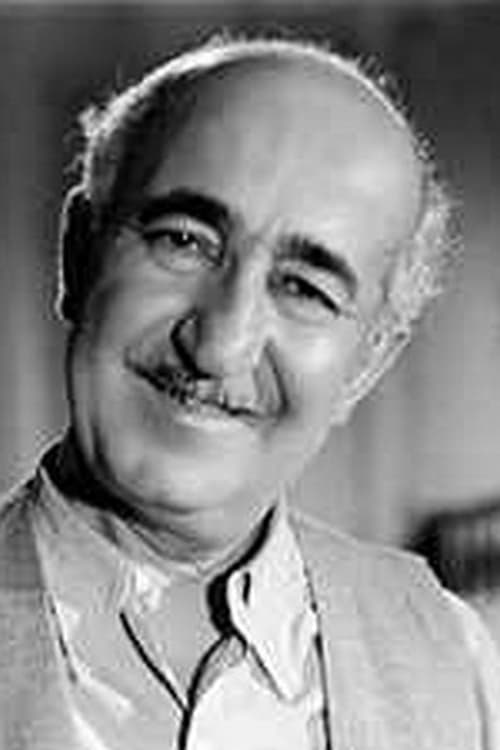
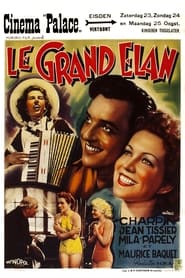 The owner of the place of...
The owner of the place of...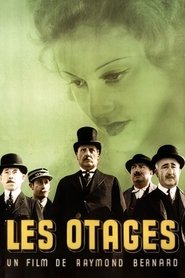 At the beginning of World War...
At the beginning of World War...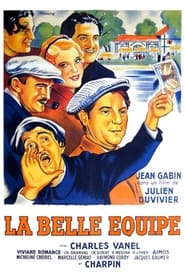 Five unemployed workers win 100000 Francs in...
Five unemployed workers win 100000 Francs in...